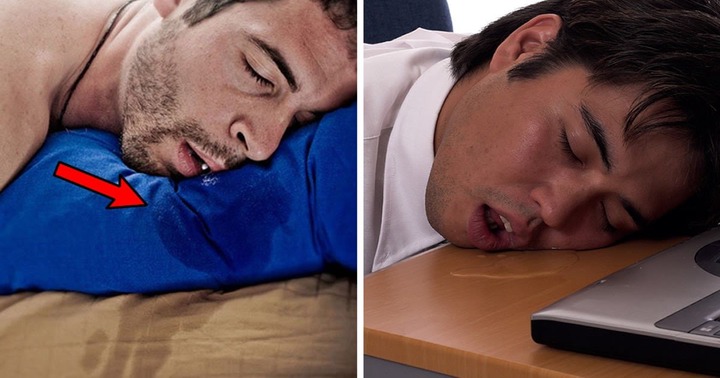Many people wake up in the morning and find a wet patch of saliva on their pillow. While it might feel a little embarrassing or uncomfortable, this is actually a very common occurrence, and science has a clear explanation for why it happens.. . Continue..Reading. .
Drooling while sleeping, medically called sialorrhea, occurs when excess saliva escapes from your mouth instead of being swallowed. During the day, we produce saliva continuously, but our brain automatically signals us to swallow it, so we hardly notice. At night, however, things change.
When you sleep deeply, your muscles – including those in your mouth, throat, and face – relax.
If you happen to sleep on your side or stomach, gravity makes it easier for saliva to leak out of your mouth and onto your pillow.
This is why drooling is less likely when you sleep on your back, because saliva naturally flows backward into your throat where it is swallowed.
Science also links drooling to the quality of your sleep.
People who enter deep sleep stages tend to drool more because the body is completely relaxed.
Interestingly, this can be a good sign, showing that you are resting well and your body is getting proper recovery.
On the other hand, excessive drooling might sometimes point to underlying issues such as allergies, sinus infections, acid reflux, or even neurological conditions that affect swallowing.
Stress and fatigue can also increase drooling because they disrupt normal sleep patterns, leading to deeper or uneven sleep.
Additionally, some medications that affect muscle control or saliva production may make drooling more noticeable.
In most cases, occasional drooling is harmless and simply a natural part of sleep.
However, if it happens too often, causes discomfort, or is accompanied by other symptoms like choking, difficulty swallowing, or bad breath, it’s a good idea to consult a doctor.
In short, finding saliva on your pillow doesn’t mean something is wrong.
It usually means you are sleeping deeply and your body is fully relaxed.
But if it becomes frequent and excessive, science advises checking for possible health conditions.If You’re Reading From Phoenix Click On Read Original at the top To Read Full Article





